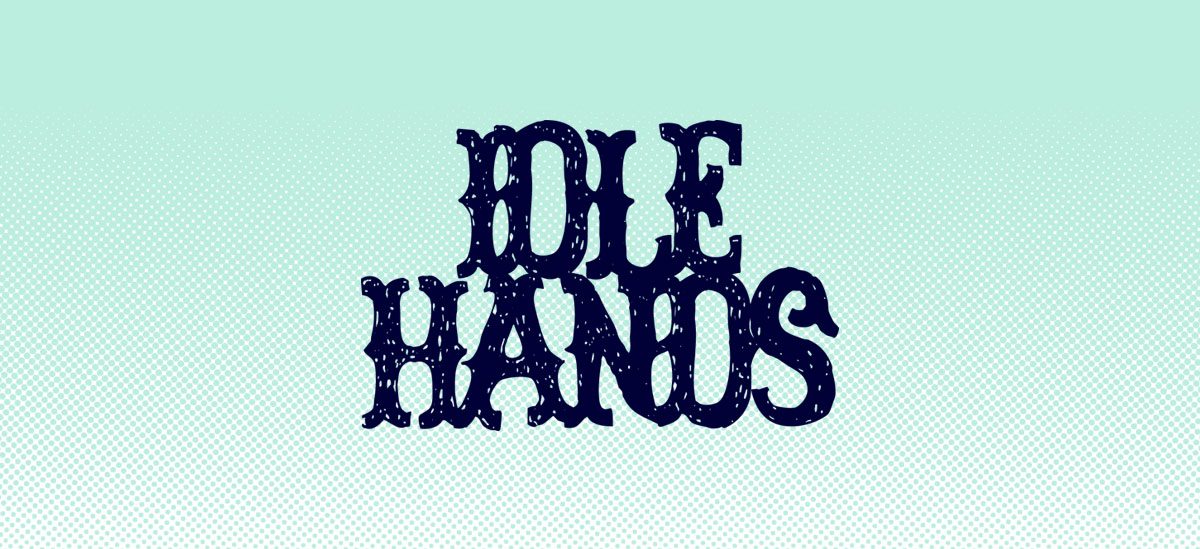Industry Insights: Idle Hands
 By Resonate | June 13, 2020
By Resonate | June 13, 2020
Words by Dylan Shortridge
During the pandemic, independent businesses have been among the worst affected. The Bristol music scene has been doing all it can to help those small businesses we hold so dear to our hearts, through support with sales of merch, or attending stream only events, or buying records.
Resonate sat down with Chris Farrell, owner of much-famed Stokes Croft record shop and label, Idle Hands, to chat about how the virus has affected his business and how his loyal customers have banded together to keep Idle Hands alive.
What do you think makes buying records special in a world of streaming?
Chris: I guess there is like a history and a culture around it which is quite appealing, if you buy something it’s a definite and a tangible thing to own. If you had asked me years ago I would have had a lot stronger of an answer, but these days I’d just say it’s a nice thing and it’s part of a culture that people want to buy into maybe. It is just nice though, isn’t it?
Has music always been a big interest of yours?
C: Yeah I mean classically, both my parents are both quite into music, my dad especially. He’s big into soul music and reggae and stuff like that. I just got introduced to a lot of different things at a young age and found my way through it. People generally say it’s their parents that put them on to this kind of stuff and I’m one of them people.
Obviously, there is a focus on electronic music at Idle Hands, when did you get into that side of music?
C: Just through raving as a teenager, it’s weird I had some friends that got into it in their early teens but I wasn’t so into it then. It was when I hit around seventeen, eighteen.
What are some of your favourite things about running a record shop?
C: It’s nice to work in something that I love. Retail is very much just selling things and that’s one side of it, but I’m lucky that I sell music as opposed to potatoes or something where it’s the same thing coming in all the time. With music you’re dealing with people’s dreams and ambitions and creative endeavours, so however much it stays the same it’s also changing and evolving. It’s fun watching it do that and to see all the different alleyways and do different things that dance music does. One year things are a bit more house, another year a bit more techno and then the electro thing comes up and you might see garage come around again.
The current situation of the world has put a strain on all independent businesses, how is it affecting you in particular?
C: In a way, it is the same as always which is time and money. Normally at the weekend I have people helping out at the shop and at the moment I can’t have them there because of social distancing and that’s slowed me down a bit. Generally, anyone who owns a small business just ends up watching the money all the time. Now everything is generally fine, but going into this it was quite a concern because I had to close the physical shop which is where I have predominantly made the most money. I took a bit of rethinking about how to do things to make money and carry one.
Have you had a good response to moving to all online sales?
C: Yeah, do you know what, it’s actually been alright. I feel quite lucky. Before this started, I made a post on Instagram highlighting my concerns about the virus and people responded with a massive amount of support. It was great and completely needed, I’m glad I did it. I think as a business you shouldn’t kind of go begging to customers, but this felt like a weird situation and I’m glad I laid it out to my customers because it showed how much support the shop really has. We got a lot of support from within the city, but also further afield as well. I’m actually trying to make the most of this now by spending more time developing the website and stuff like that. It’s a terrible time for everybody, some more so than others, but trying to see some good in it.
From the point of view of a record shop, what can fans of music be doing to keep their respective scenes alive?
C: We live so much of life through social media these days, so the support through there really counts. Different people have different roles to play in the whole infrastructure of how it runs within a scene or whatever. I feel very lucky that I run the shop that’s relatively secure. I feel a lot for the artists that will have had their entire income stream chopped off. You have this certain stratum of DJ’s and producers, and they might now be making a really healthy living off DJing. They might have just switched from working a day job to doing it full time. They’re the people I really feel sorry for. It’s the artists who are struggling, so I guess I’d suggest direct Bandcamp sales. That stuff is a good way to help.
To find more Industry Insights, click here.